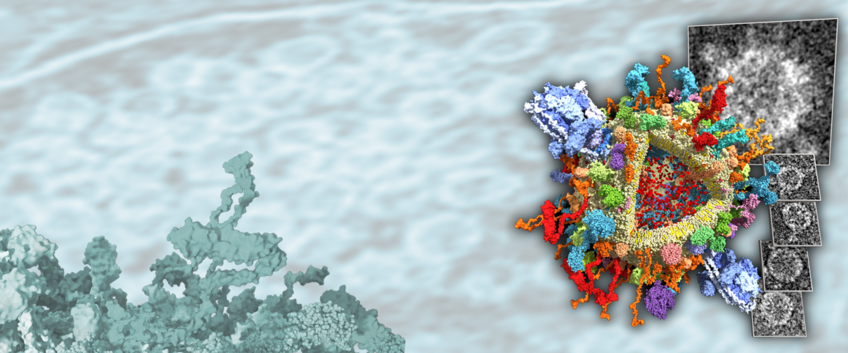
Publications of H. D. Schmitt
All genres
Journal Article (32)
1.
Journal Article
Proteogenomics analysis of CUG codon translation in the human pathogen Candida albicans. BMC Biology 19, 258 (2021)
2.
Journal Article
Endogenous stochastic decoding of the CUG codon by competing Ser- and Leu-tRNAs in Ascoidea asiatica. Current Biology 28 (13), pp. 2046 - 2057 (2018)
3.
Journal Article
ER arrival sites for COPI vesicles localize to hotspots of membrane trafficking. EMBO Journal 35 (17), pp. 1935 - 1955 (2016)
4.
Journal Article
Coat/tether interactions-exception or rule? Frontiers in Cell and Developmental Biology 4, 44 (2016)
5.
Journal Article
The Dsl1 protein tethering complex is a resident endoplasmic reticulum complex, which interacts with five soluble NSF (N-ethylmaleimide-sensitive factor) attachment protein receptors (SNAREs) implications for fusion and fusion regulation. Journal of Biological Chemistry 286 (28), pp. 25039 - 25046 (2011)
6.
Journal Article
Dsl1p/Zw10: common mechanisms behind tethering vesicles and microtubules. Trends in Cell Biology 20 (5), pp. 257 - 268 (2010)
7.
Journal Article
A tethering complex recruits SNAREs and grabs vesicles. Cell 139 (6), pp. 1053 - 1055 (2009)
8.
Journal Article
A link between ER tethering and COP-I vesicle uncoating. Developmental Cell 17 (3), pp. 403 - 416 (2009)
9.
Journal Article
The GET complex mediates insertion of tail-anchored proteins into the ER membrane. Cell 134 (4), pp. 634 - 645 (2008)
10.
Journal Article
Mutations of the SM protein Sly1 resulting in bypass of GTPase requirement in vesicular transport are confined to a short helical region. FEBS Letters 581 (29), pp. 5698 - 5702 (2007)
11.
Journal Article
Dsl1p, Tip20p, and the novel Dsl3(Sec39) protein are required for the stability of the Q/t-SNARE complex at the endoplasmic reticulum in yeast. Molecular Biology of the Cell 16 (9), pp. 3963 - 3977 (2005)
12.
Journal Article
Identification of functionally interacting SNAREs by using complementary substitutions in the conserved '0' layer. Molecular Biology of the Cell 16 (5), pp. 2263 - 2274 (2005)
13.
Journal Article
Dsl1p, an essential component of the Golgi-endoplasmic reticulum retrieval system in yeast, uses the same sequence motif to interact with different subunits of the COPI vesicle coat. Journal of Biological Chemistry 278 (51), pp. 51722 - 51734 (2003)
14.
Journal Article
Use1p is a yeast SNARE protein required for retrograde traffic to the ER. EMBO Journal 22 (14), pp. 3664 - 3674 (2003)
15.
Journal Article
Use1p is a yeast SNARE protein required for retrograde traffic from the Golgi to the ER. Yeast 20 (Suppl. 1), p. S37 - S37 (2003)
16.
Journal Article
ARF-GAP-mediated interaction between the ER-Golgi v-SNAREs and the COPI coat. Journal of Cell Biology 157 (3), pp. 395 - 404 (2002)
17.
Journal Article
The coatomer-interacting protein Dsl 1 p is required for Golgi-to-endoplasmic reticulum retrieval in yeast. Journal of Biological Chemistry 276, pp. 39150 - 39160 (2001)
18.
Journal Article
Exocytosis requires asymmetry in the central layer of the SNARE complex. EMBO Journal 19, pp. 6000 - 6010 (2000)
19.
Journal Article
Yeast ER-Golgi v-SNAREs Bos1p and Bet1p differ in steady-state localization and targeting. Journal of Cell Science 112, pp. 4135 - 4142 (1999)
20.
Journal Article
Functional implications of genetic interactions between genes encoding small GTPases involved in vesicular transport. Molecular General Genetics 261, pp. 80 - 91 (1999)